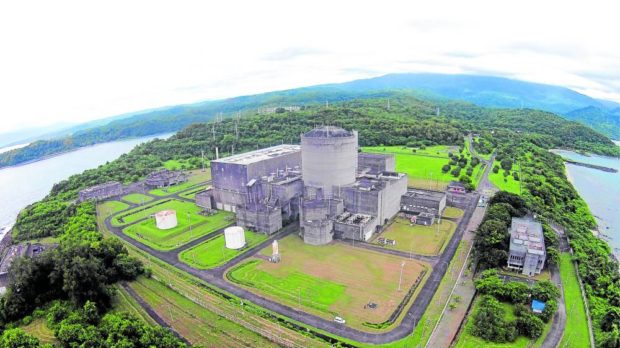
The mothballed Bataan Nuclear Power Plant (INQUIRER FILE PHOTO)
MANILA, Philippines — The Philippines needs a law on nuclear energy to ensure that the people and the environment are protected against potential risks should the government include this in the energy mix, the International Atomic Energy Agency (IAEA) said on Tuesday.
In a statement, the House of Representatives said IAEA informed lawmakers who hosted a forum on nuclear energy and international legal instruments that the law should contain the following provisions:
- regulatory control
- safe and secure uses
- offenses and penalties
- International cooperation
- peaceful uses
- compensation and liability
The IAEA said this after the House special committee on nuclear energy, headed by Pangasinan 2nd District Rep. Mark Cojuangco, invited the Vienna-based organization to help Filipino lawmakers trying to come up with the necessary legal framework and policies for nuclear energy use.
“According to Rep. Cojuangco, there is an urgent need to address high energy prices in the country that wards off investors who could bring job opportunities for Filipinos,” a statement from the House of Representatives said.
“As the country explores the nuclear energy option, IAEA Legislative Assistance Program Head Anthony Wetherall stressed the need for a law on nuclear power that would protect the people and the environment against risks,” it added.
“Wetherall also proposed for the Philippines to take part in the Convention on Nuclear Safety which focuses on safe management of radioactive waste and spent fuel, as well as the 1997 Vienna Convention that tackles liability and compensation in case of a nuclear incident,” the House said.
“Rep. Cojuangco shared that the IAEA has already pinpointed 17 locations, encouraging the government to choose sites based on levels of social acceptance of the community,” it added.
House Speaker Ferdinand Martin Romualdez earlier lauded President Ferdinand Marcos Jr.’s firm push for nuclear energy as the country needs cheaper and alternative sources to bring power prices down.
This was after Romualdez, Marcos, and other members of the Philippine delegation currently in the United States for an official trip met with Oregon-based NuScale Power Corporation.
NuScale, which has expressed interest in investing in the country, offers small modular reactor technology (SMR).
According to the IAEA, SMRs are “advanced nuclear reactors that have a power capacity of up to 300 MW (megawatts)(e) per unit”.
IAEA said this type of nuclear reactor is best for areas where large and conventional nuclear reactors are not suitable, due to geographical limitations.
Construction of the SMR also does not have to be done on-site, as these can be built by companies like NuScale and then shipped to a particular location.
The Presidential Communications Office (PCO) announced that NuScale may invest around $6.5 billion to $7.5 billion, to provide 430MW to the country by 2031.
The Philippine Nuclear Research Institute has already raised the possibility of SMRs being used in the country, as these would be practical for off-grid or hard-to-reach areas.